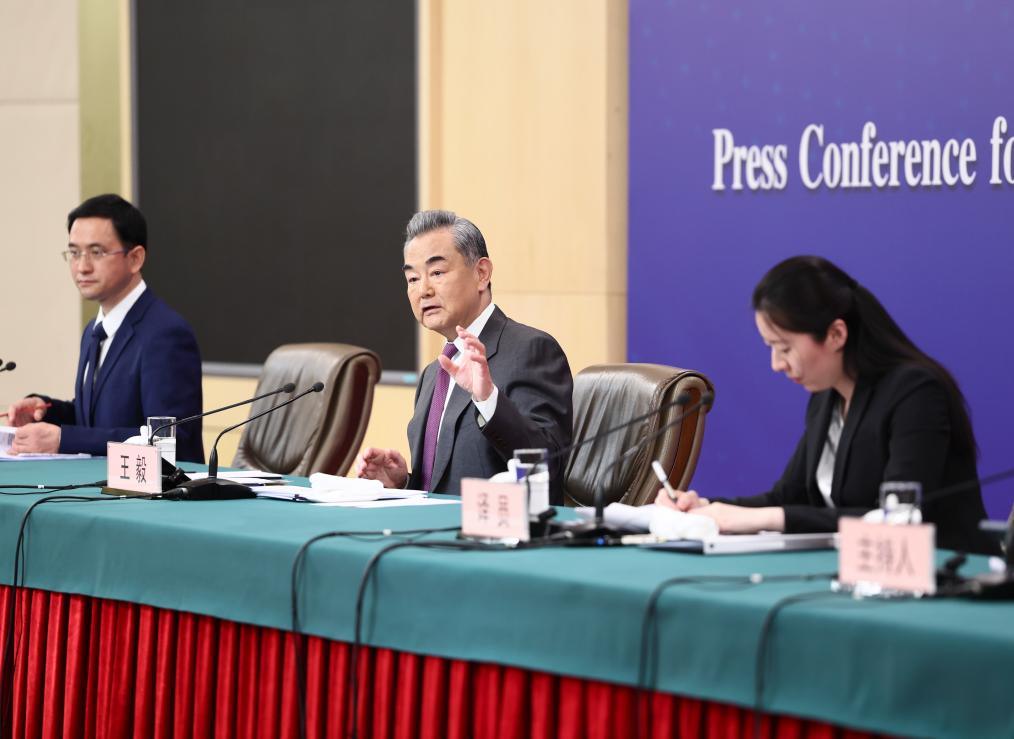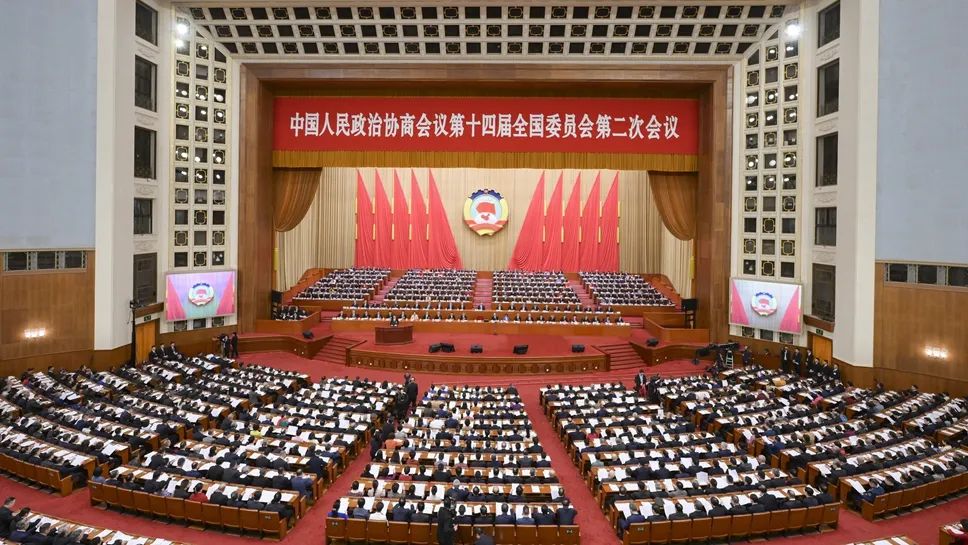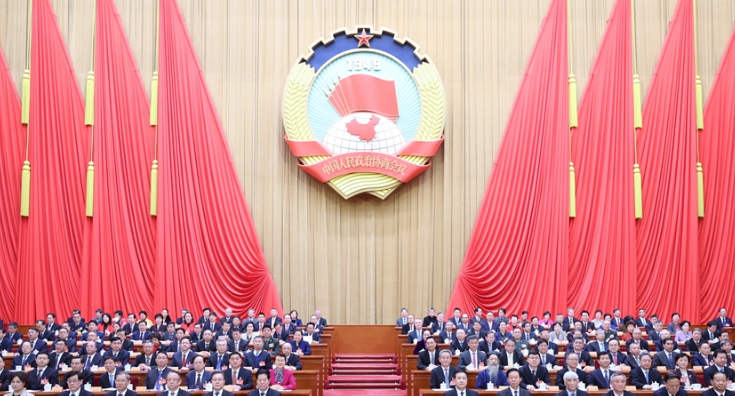CATTI-题库-真题-模拟-课程-直播
 天之聪教育
天之聪教育
 2012-08-17
2012-08-17
 口译网
口译网
 518次
518次
Remarks at the 2012 International AIDS Conference
By US Secretary of State Hillary Rodham Clinton
Washington Convention Center
Washington, D.C.
July 23, 2012
在2012年世界艾滋病大会上的讲话
美国国务卿 希拉里·罗德姆·克林顿
华盛顿哥伦比亚特区 华盛顿会展中心
2012年7月23日
Good morning, and – (applause) – now, what would an AIDS conference be without a little protesting? We understand that. (Applause.) Part of the reason we’ve come as far as we have is because so many people all over the world have not been satisfied that we have done enough. And I am here to set a goal for a generation that is free of AIDS. (Applause.) But first, let me say five words we have not been able to say for too long: “Welcome to the United States.” (Applause.) We are so pleased to have you all finally back here.
早上好(掌声)– 听我说,艾滋病大会没有人抗议是否会很奇怪?我们对此表示理解。(掌声)我们之所以取得了今天的成果,其原因之一就是世界各地有许许多多的人认为我们做得还不够。我今天将在这里宣布一项目标,要让下一代人免受艾滋病的侵害。(掌声)但是,有一句话我们很久没有说了,所以我要先说一下:“欢迎来到美国。”(掌声)大家最后能重新回到这里,我们非常高兴。
And I want to thank the leaders of the many countries who have joined us. I want to acknowledge my colleagues from the Administration and the Congress who have contributed so much to the fight against AIDS. But mostly, I want to salute all of the people who are here today who do the hard work that has given us the chance to stand here in 2012 and actually imagine a time when we will no longer be afflicted by this terrible epidemic and the great cost and suffering it has imposed for far too long. (Applause.) On behalf of all Americans, we thank you.
我要向和我们一道努力的许多国家的领导人表示感谢。我还要表彰我在美国行政部门的同事们以及美国国会议员们,他们为抗击艾滋病做出了重大贡献。但最重要的是,我要向今天到场的各位表达敬意,由于你们的艰苦努力,我们有机会在2012年站在这里,展望彻底铲除这一可怕的流行病的那一天 (掌声)。在太长的时间里,这种疾病让我们付出了巨大的代价,给我们造成了巨大的痛苦。我们代表全体美国人民感谢你们。
But I want to take a step back and think how far we have come since the last time this conference was held in the United States. It was in 1990 in San Francisco. Dr. Eric Goosby, who is now our Global AIDS Ambassador, ran a triage center there for all the HIV-positive people who became sick during the conference. They set up IV drug drips to rehydrate patients. They gave antibiotics to people with AIDS-related pneumonia. Many had to be hospitalized and a few died.
然而,我要回顾和思考一下自从上次在美国召开这个大会以来我们所取得的进展。那是1990年,在旧金山。现在担任美国全球艾滋病事务协调员的埃里克·古斯比医生在会场上设立了一个诊断中心,为在大会期间生病的所有艾滋病毒感染者提供医疗服务。他们为脱水的病人提供药物静脉滴注,向因艾滋病而感染肺炎的人发放抗生素。有许多人被送往医院,还有几个人死亡。
Even at a time when the world’s response to the epidemic was sorely lacking, there were places and people of caring where people with AIDS found support. But tragically, there was so little that could be done medically. And thankfully, that has changed. Caring brought action, and action has made an impact.
令人痛心的是,当时全世界对这种流行病几乎没有采取应对措施,即令如此,在一些地方还是有一些有善心的人为艾滋病患者提供支持。但令人悲哀的是,医生们基本上束手无策。有幸的是,这种情况已经改变。关爱带来行动,行动产生了效果。
The ability to prevent and treat the disease has advanced beyond what many might have reasonably hoped 22 years ago. Yes, AIDS is still incurable, but it no longer has to be a death sentence. That is a tribute to the work of countless people around the world – many of whom are here at this conference, others who are no longer with us but whose contributions live on. And for decades, the United States has played a key role. Starting in the 1990s under the Clinton Administration, we began slowly to make HIV treatment drugs more affordable, we began to face the epidemic in our own country. And then in 2003, President Bush launched PEPFAR with strong bipartisan support from Congress and this country began treating millions of people.
这种疾病的预防和治疗手段的进步可能是许多人在22年以前无法想象的。不错,艾滋病依然是不治之症,但它不再意味着死刑。对于世界各地无数为之辛勤努力的人们——其中有很多人今天在这里参加会议——这是一种赞誉。还有一些人已经离开了我们,但他们的贡献继续使我们受益。在过去几十年里,美国发挥了关键作用。从1990年代克林顿政府开始,我们逐步降低了艾滋病治疗药物的价格,这种疾病也开始在美国传播。2003年,在国会两党议员的强有力支持下,布什总统启动了"总统防治艾滋病紧急救援计划"( PEPFAR),美国开始为数百万人提供治疗。
Today under President Obama, we are building on this legacy. PEPFAR is shifting out of emergency mode and starting to build sustainable health systems that will help us finally win this fight and deliver an AIDS-free generation. It’s hard to overstate how sweeping or how crucial this change is. When President Obama took office, we knew that if we were going to win the fight against AIDS we could not keep treating it as an emergency. We had to fundamentally change the way we and our global partners did business.
今天,在欧巴马总统领导下,我们发扬了这一传统。PEPFAR不再是一项紧急救援计划,其重心转向建设可持续的医疗保健系统,以最终赢得这场战斗,使下一代人不再遭受艾滋病的侵害。这一变化的规模和重要性是无法估量的。当欧巴马总统上任时,我们认识到,如果我们要在抗击艾滋病的这场战斗中取胜,我们就不能再把它当作一项紧急任务,而必须彻底改变我们和我们的全球伙伴的行为方式。
So we’ve engaged diplomatically with ministers of finance and health, but also with presidents and prime ministers to listen and learn about their priorities and needs in order to chart the best way forward together. Now I will admit that has required difficult conversations about issues that some leaders don’t want to face, like government corruption in the procurement and delivery of drugs or dealing with injecting drug users, but it has been an essential part of helping more countries manage more of their own response to the epidemic.
因此,我们通过外交途径与各位财政部长和卫生部长沟通,而且还与各位总统和总理沟通,听取并了解他们的工作重点和需求,以利于找出共同前进的最佳路线。现在,我要承认,为此必须就某些领导人不想面对的问题进行艰难的对话,例如政府在采购和提供药物的工作中的腐败行为以及如何对待注射毒品者,但这却是帮助更多的国家更广泛地管理其防治措施的关键一步。
We’ve also focused on supporting high-impact interventions, making tough decisions driven by science about what we will and will not fund. And we are delivering more results for the American taxpayer’s dollar by taking simple steps – switching to generic drugs, which saved more than $380 million in 2010 alone. (Applause.)
我们还集中力量实施效果显著的干预措施,以科学为依据作出资助哪些项目以及不资助哪些项目的艰难抉择。我们采取简单的步骤——例如转用非专利药物——用美国纳税人的钱取得更多的成果,仅在2010年一年就节省了3.8亿多美元。(掌声)
And crucially, we have vastly improved our coordination with the Global Fund. Where we used to work independently of each other, we now sit down together to decide, for example, which of us will fund AIDS treatment somewhere and which of us will fund the delivery of that treatment. That is a new way of working together for both of us, but I think it holds great results for all of us. (Applause.) Now all of these strategic shifts have required a lot of heavy lifting. But it only matters in the end if it means we are saving more lives – and we are.
至关重要的是,我们已经大大改善了我们与全球基金的协作。现在,我们会在原来各行其是的领域一起坐下来作出决策,例如在某地由谁来资助艾滋病的治疗,又由谁来提供这种治疗。这对我们双方而言是一个进行合作的新途径,但我认为这将给我们各方带来巨大的成果。(掌声)而所有这些战略转变都必须依赖大量繁重的工作。但归根结底,关键在于我们是否在挽救更多的生命——我们确实正在这样做。
Since 2009, we have more than doubled the number of people who get treatment that keeps them alive. (Applause.) We are also reaching far more people with prevention, testing, and counseling.
自2009年以来,我们通过提供治疗使活下来的人增加了一倍多。(掌声)我们也增加了预防、检测和咨询惠及的人数。
And I want publicly to thank, first and foremost, Dr. Eric Goosby, who has been on the front lines of all this work since the 1980s in San Francisco. (Applause.) He is somewhere in this vast hall, cringing with embarrassment, but more than anyone else, he had a vision for what PEPFAR needed to become and the tenacity to keep working to make it happen. And I want to thank his extraordinary partners here in this Administration, Dr. Tom Frieden at the Centers for Disease Control and Dr. Raj Shah at USAID. (Applause.)
我首先要当众感谢埃里克·古斯比医生,他自20世纪80年代在旧金山从事有关工作以来,一直在该领域中站在所有努力的前沿。(掌声)他就在这个宽敞的大厅的某个角落,可能不希望大家注意到他,但他比其他人更有远见,知道总统防治艾滋病紧急救援计划需要实现什么样的愿景,而且他还具有坚韧的毅力,为达到目标锲而不舍。我还要感谢他在本届政府中非同一般的合作伙伴,疾病控制中心的汤姆·弗里登医生(Tom Frieden)和美国国际开发署的拉吉·沙阿博士。(掌声)
Now, with the progress we are making together, we can look ahead to a historic goal: creating an AIDS-free generation. This is part of President Obama’s call to make fighting global HIV/AIDS at home and abroad a priority for this administration. In July 2010, he launched the first comprehensive National HIV/AIDS Strategy, which has reinvigorated the domestic response to the epidemic – especially important here in Washington D.C., which needs more attention, more resources, and smarter strategies to deal with the epidemic in our nation’s capital.
现在,由于我们正在共同取得的进展,我们可以展望一个历史性目标:实现无艾滋病的一代。这是欧巴马总统敦促把在国内外抗击全球艾滋病毒/艾滋病作为本届政府的当务之急的内容之一。2010年7月,他提出了第一个综合性的国家艾滋病毒/艾滋病战略,为在国内应对疫情注入了新的活力——这在华盛顿尤其重要,在我国首都应对疫情需要有更多的关注、更多的资源和更明智的策略。
And last November, at the National Institutes of Health, with my friend Dr. Tony Fauci there, I spoke in depth about the goal of an AIDS-free generation and laid out some of the ways we are advancing it through PEPFAR, USAID, and the CDC. And on World AIDS Day, President Obama announced an ambitious commitment for the United States to reach 6 million people globally with lifesaving treatment. (Applause.)
去年11月,我在国家卫生院与我的朋友托尼·福西医生一起深入地探讨无艾滋病一代的目标,并阐述了我们正在通过总统防治艾滋病紧急救援计划、美国国际开发署以及疾病控制和预防中心推进该目标的一些方式。在世界艾滋病日,欧巴马总统宣布了美国的一项雄心勃勃的承诺,保证让全球600万人获得能够拯救生命的治疗。(掌声)
Now since that time I’ve heard a few voices from people raising questions about America’s commitment to an AIDS-free generation, wondering whether we are really serious about achieving it. Well, I am here today to make it absolutely clear: The United States is committed and will remain committed to achieving an AIDS-free generation. We will not back off, we will not back down, we will fight for the resources necessary to achieve this historic milestone. (Applause.)
从那以后,我已经听到人们发出了一些质疑的声音,围绕美国对无艾滋病一代的承诺提出疑问,并想知道我们对于履行这些承诺是否认真。事实上,我今天到场的目的之一就是要把这一点讲清楚:美国现在和将来都始终承诺要实现无艾滋病的一代。我们不会放弃这个目标,我们不会让步,我们会争取必要的资源来达及这一历史性的里程碑。(掌声)
I know that many of you share my passion about achieving this goal. In fact, one could say I am preaching to the choir. But right now, I think we need a little preaching to the choir. And we need the choir and the congregation to keep singing, lifting up their voices, and spreading the message to everyone who is still standing outside.
我知道你们中间有许多人和我一样抱着实现这一目标的激情。事实上,可以说我是在对唱诗班布道。但此时此刻,我认为我们需要对唱诗班布一点道。我们需要唱诗班和会众们不停地唱,提高嗓门、向仍然站在门外的每一个人传递这个信息。
So while I want to reaffirm my government’s commitment, I’m also here to boost yours. This is a fight we can win. We have already come so far – too far to stop now.
因此,在重申我国政府的承诺的同时,我也在这里为你们的承诺鼓劲。这是我们能打赢的一仗。我们已经走了这么远——现在止步是不可能的。
I want to describe some of the progress we’ve made toward that goal and some of the work that lies ahead.
我想说明我们朝着这个目标已经取得的进展以及一些摆在面前的工作。
Let me begin by defining what we mean by an AIDS-free generation. It is a time when, first of all, virtually no child anywhere will be born with the virus. (Applause.) Secondly, as children and teenagers become adults, they will be at significantly lower risk of ever becoming infected than they would be today no matter where they are living. (Applause.) And third, if someone does acquire HIV, they will have access to treatment that helps prevent them from developing AIDS and passing the virus on to others.
首先让我给我们所说的无艾滋病的一代下个定义。这首先是一个在任何地方出生的孩子都不携带病毒的时代。(掌声)其次,当儿童和青少年长大成人时,不管他们身居何处,他们被感染的风险都将比今天显著降低。(掌声)第三,如果有人的确感染了艾滋病毒,他们将有机会获得治疗,有助于遏制病毒引发艾滋病并传染给他人。
So yes, HIV may be with us into the future until we finally achieve a cure, a vaccine, but the disease that HIV causes need not be with us. (Applause.)
因此,艾滋病毒也许将来还会伴随着我们,直到我们最终找到一种治疗方法、找到一种疫苗,但艾滋病毒所引发的疾病却不一定要伴随我们。(掌声)
As of last fall, every agency in the United States Government involved in this effort is working together to get us on that path to an AIDS-free generation. We’re focusing on what we call combination prevention. Our strategy includes condoms, counseling and testing, and places special emphasis on three other interventions: treatment as prevention, voluntary medical male circumcision, and stopping the transmission of HIV from mothers to children.
自去年秋天开始,美国政府各个相关部门开展合作,以便使我们走上“无艾滋病的一代”的道路。现在我们集中于我们所说的综合预防战略,其中包括避孕套、咨询和测试措施,并特别侧重于其他三项干预手段:预防性治疗、男性自愿包皮环切术和防止艾滋病毒母婴传播。
Since November, we have elevated combination prevention in all our HIV/AIDS work –including right here in Washington, which still has the highest HIV rate of any large city in our country. And globally, we have supported our partner countries shifting their investments toward the specific mix of prevention tools that will have the greatest impact for their people. For example, Haiti is scaling up its efforts to prevent mother-to-child transmission, including full treatment for mothers with HIV, which will in turn, of course, prevent new infections. And for the first time, the Haitian Ministry of Health is committing its own funding to provide antiretroviral treatment. (Applause.)
自去年11月以来,我们提升了综合预防在一切艾滋病防治工作中的重要性,包括在华盛顿——它仍是我国艾滋病毒感染率最高的城市。而在全球,我们支持合作伙伴国家将其投资转移到可对人民产生最大效果的具体预防手段组合。例如,海地正加大努力预防艾滋病毒母婴传播,包括对携带艾滋病毒的孕妇的全面治疗,而这显然能够预防新的感染。海地卫生部第一次将自己的资金投入抗病毒治疗。(掌声)
We’re also making notable progress on the three pillars of our combination-prevention strategy. On treatment as prevention, the United States has added funding for nearly 600,000 more people since September, which means we are reaching nearly 4.5 million people now and closing in on our national goal of 6 million by the end of next year. That is our contribution to the global effort to reach universal coverage.
我们在综合预防战略的三个主要方面也正在取得显著进步。在预防性治疗方面,美国政府自去年9月起又增加了用于近60万人的资金,这意味着现在我们已向近450万人提供帮助,逐渐接近我们明年底达到600万人的国家目标。这是我们为让治疗遍及全球的国际努力所做的贡献。
On male circumcision, we’ve supported more than 400,000 procedures since last December alone. And I’m pleased to announce that PEPFAR will provide an additional $40 million to support South Africa’s plans to provide voluntary medical circumcisions for almost half a million boys and men in the coming year. (Applause.) You know and we want the world to know that this procedure reduces the risk of female-to-male transmission by more than 60 percent and for the rest of the man’s life, so the impact can be phenomenal.
在男性包皮环切术方面,仅从去年12月起我们已资助了40多万例手术。在此我高兴地宣布,总统防治艾滋病紧急救援计划将再提供4000万美元,支持南非在明年为近50万男童和成年男性提供自愿包皮环切手术。(掌声)我们希望世界知道,包皮环切术可将女性向男性传播率减少60%以上,并且关系到男性今后的一生,因此效果会非常显著。
In Kenya and Tanzania, mothers asked for circumcision campaigns during school vacations so their teenage sons could participate. In Zimbabwe, some male lawmakers wanted to show their constituents how safe and virtually painless the procedure is, so they went to a mobile clinic and got circumcised. That’s the kind of leadership we welcome. And we are also seeing the development of new tools that would allow people to perform the procedure with less training and equipment than they need today without compromising safety. And when such a device is approved by the World Health Organization, PEPFAR is ready to support it right away. (Applause.)
在肯尼亚和坦桑尼亚,母亲们要求在学校放假期间进行包皮环切手术教育活动,以便她们的孩子们能够参加。在津巴布韦,一些男性立法人员为向选民展示环切术安全和基本无痛,而来到移动诊所接受环切手术。这就是我们所欢迎的领导作用。我们还看到新工具的开发,从而在不降低安全性的情况下通过比目前更简单的训练和设备实施这项手术。在这项设备得到世界卫生组织批准后,总统防治艾滋病紧急救援计划将会立即予以支持。(掌声)
And on mother-to-child transmission, we are committed to eliminating it by 2015, getting the number to zero. Over the years – (applause) – we’ve invested more than $1 billion for this effort. In the first half of this fiscal year, we reached more than 370,000 women globally, and we are on track to hit PEPFAR’s target of reaching an additional 1.5 million women by next year. We are also setting out to overcome one of the biggest hurdles in getting to zero. When women are identified as HIV-positive and eligible for treatment, they are often referred to another clinic, one that may be too far away for them to reach. As a result too many women never start treatment.
在母婴传播方面,我们致力于到2015年实现全面预防,使传播数量降到零。多年以来——(掌声)——我们在这方面投入了10亿多美元。在本财政年度的上半年,我们已在全球资助了超过37万名女性,正在朝明年再资助150万名女性的总统防治艾滋病紧急救援计划的目标迈进。我们还在着手克服实现母婴零传播的最大障碍之一:当女性被诊断为艾滋病毒阳性且符合治疗条件时,她们通常被转到另一个可能离她们太远而无法到达的诊所,因此其中太多人从未开始治疗。
Today, I am announcing that the United States will invest an additional $80 million to fill this gap. These funds – (applause) – will support innovative approaches to ensure that HIV-positive pregnant women get the treatment they need to protect themselves, their babies, and their partners. So let there be no mistake, the United States is accelerating its work on all three of these fronts in the effort to create an AIDS-free generation and look at how all these elements come together to make a historic impact.
今天,我宣布美国将再投资8000万美元填补这个缺口。这笔资金——(掌声)——将支持创新方法,确保艾滋病毒检测阳性的孕妇获得保护她们自己及其婴儿和伴侣所需的治疗。因此明确无误的是,美国正在加速开展上面提到的三方面工作,努力实现无艾滋病的一代,并在审视如何综合所有这些手段以产生历史性的影响。
In Zambia, we’re supporting the government as they step up their efforts to prevent mother-to-child transmission. Between 2009 and 2011, the number of new infections went down by more than half. And we are just getting started. Together, we’re going to keep up our momentum on mother-to-child transmission. In addition, we will help many more Zambians get on treatment and support a massive scale-up of male circumcision as well, two steps that, according to our models, will drive down the number of new sexually transmitted infections there by more than 25 percent over the next 5 years. So as the number of new infections in Zambia goes down, it will be possible to treat more people than are becoming infected each year. So we will, for the first time, get ahead of the pandemic there. And eventually, an AIDS-free generation of Zambians will be in sight.
在赞比亚,我们支持其政府加大步伐预防母婴传播。在2009年至2011年期间,新感染人数减少了一半以上。这只是个开始,我们将携手努力,保持在降低母婴传播方面的良好势头。此外,我们还将帮助更多赞比亚人获得治疗,同时资助更多男性包皮环切术。根据我们的模式,这两个步骤可以在未来五年将新的性传播感染降低25%以上。因此,随着赞比亚新感染人数的降低,每年接受治疗的人数将有可能超过被感染人数。我们将首次超过艾滋病的传播速度。最终,赞比亚将会看到无艾滋病的一代。
Think of the lives we will touch in Zambia alone – all the mothers and fathers and children who will never have their lives ripped apart by this disease. And now, multiply that across the many other countries we are working with. In fact, if you’re not getting excited about this, please raise your hand and I will send somebody to check your pulse. (Laughter and applause.)
想象一下我们仅在赞比亚一国对生命产生的影响——所有母亲、父亲和儿童的生活再也不会被艾滋病破坏。那么现在再乘以我们正在资助的许多其他国家。说实话,如果您没有因此感到兴奋,请举手,我会让人来检查一下您的脉搏。(笑声和掌声)
But I know that creating an AIDS-free generation takes more than the right tools, as important as they are. Ultimately, it’s about people – the people who have the most to contribute to this goal and the most to gain from it. That means embracing the essential role that communities play – especially people living with HIV – and the critical work of faith-based organizations. We need to make sure we’re looking out for orphans and vulnerable children who are too often still overlooked in this epidemic. (Applause.)
不过,我知道,迎来无艾滋病的一代需要的不仅仅是正确的手段,尽管它们非常重要。最终还在于人——那些能为此目标作出最大贡献并能因此获得最大收益的人们。这意味着肯定社区发挥的重要作用尤其是艾滋病毒携带者所发挥的作用,以及宗教组织所从事的关键性工作。我们需要确保关照孤儿和弱势儿童,他们在这一流行病中仍经常被忽视。(掌声)
And it will be no surprise to you to hear me say I want to highlight the particular role that women play. (Applause.) In Sub-Saharan Africa today, women account for 60 percent of those living with HIV. Women want to protect themselves from HIV and they want access to adequate health care. And we need to answer their call. PEPFAR is part of our comprehensive effort to meet the health needs of women and girls, working across United States Government and with our partners on HIV, maternal and child health, and reproductive health, including voluntary family planning and our newly launched Child Survival Call to Action.
你们听到我表示希望强调妇女所发挥的特殊作用不会感到意外。(掌声) 在今日非洲撒哈拉沙漠以南地区,艾滋病毒携带者中有60%是女性。妇女们希望预防艾滋病,她们希望得到适当治疗。我们需要响应她们的呼声。总统艾滋病紧急救援计划是我们满足妇女医疗需求的综合努力的一部分,美国政府各部门正在努力,并与合作方共同奋斗,以解决艾滋病毒、母婴健康以及生殖健康等问题,这其中包括自愿性的计划生育以及我们新发起的“行动起来拯救儿童” 活动。
Every woman should be able to decide when and whether to have children. This is true whether she is HIV-positive or not. (Applause.) And I agree with the strong message that came out of the London Summit on Family Planning earlier this month. There should be no controversy about this. None at all. (Applause.)
每位妇女都应该能够决定何时以及是否愿意生儿育女。无论她是否感染了艾滋病毒,都应如此。(掌声)我赞同本月初伦敦计划生育峰会发出的强烈呼声。这是毋庸置疑的。这是毫无疑问的。(掌声)
And across all of our health and development work, the United States is emphasizing gender equality because women need and deserve a voice in the decisions that affect their lives. (Applause.) And we are working to prevent and respond to gender-based violence, which puts women at higher risk for contracting the virus. And because women need more ways to protect themselves from HIV infection, last year we invested more than $90 million in research on microbicides. All these efforts will help close the health gap between women and men and lead to healthier families, communities, and nations as well.
在我们所有的健康与开发工作中,美国都在强调性别平等,因为妇女在影响到其生活的决策中需要并应该发出自己的声音。(掌声)我们正在努力预防并应对性暴力,性暴力增加了妇女感染这种病毒的风险。由于妇女需要掌握更多的方法来预防感染艾滋病毒,我们去年投入了9000多万美元进行杀微生物剂的研究。所有这些努力帮助消除了女性与男性之间的健康差距,并使家庭、社区和国家更加健康。
If we’re going to create an AIDS-free generation, we also must address the needs of the people who are at the highest risk of contracting HIV. One recent study of female sex workers and those trafficked into prostitution in low and middle income-countries found that, on average, 12 percent of them were HIV-positive, far above the rates for women at large. And people who use injecting drugs account for about one third of all the people who acquire HIV outside of Sub-Saharan Africa. And in low-and middle income countries, studies suggest that HIV prevalence among men who have sex with male partners could be up to 19 times higher than among the general population.
我们若要迎来无艾滋病的一代,还必须解决感染艾滋病毒的风险最高的人群的需求。最近一项对女性性工作者以及那些被贩运到低中收入国家从事卖淫活动的人员所进行的研究结果显示,这些人中平均有12%的人感染上了艾滋病毒,远远高过一般女性的感染率。 除非洲撒哈拉沙漠以南地区外,所有艾滋病毒携带者中大约有三分之一的人为注射毒品使用者。研究显示,在低中收入国家中,男同性恋中的艾滋病毒流行率可能比一般人口高出19倍。
Now over the years, I have seen and experienced how difficult it can be to talk about a disease that is transmitted the way that AIDS is. But if we’re going to beat AIDS, we can’t afford to avoid sensitive conversations, and we can’t fail to reach the people who are at the highest risk. (Applause.)
多年来,我目睹并感受到,要谈论一种像艾滋病这样传播的疾病,是多么困难。然而如果我们要战胜艾滋病,就不能回避敏感的对话,我们不能置那些高危人口于不顾。(掌声)
Unfortunately, today very few countries monitor the quality of services delivered to these high-risk key populations. Fewer still rigorously assess whether the services provided actually prevent transmission or do anything to ensure that HIV-positive people in these groups get the care and treatment they need. Even worse, some take actions that, rather than discouraging risky behavior, actually drives more people into the shadows, where the epidemic is that much harder to fight.
令人遗憾的是,今天很少有国家对向这些关键性的高危人口提供的服务进行监督。而对这些服务是否切实预防传播或是否有助于确保这些群体中的艾滋病毒携带者得到所需的治疗进行认真评估的国家就更少了。更有甚者,一些国家的所作所为不仅不杜绝风险行为,反而迫使更多的人陷入阴影之中,更难以对抗艾滋病疫情。
And the consequences are devastating for the people themselves and for the fight against HIV because when key groups are marginalized, the virus spreads rapidly within those groups and then also into the lower-risk general population. We are seeing this happen right now in Eastern Europe and Southeast Asia. Humans might discriminate, but viruses do not.
这种后果对于感染者本人不堪设想,对于防治艾滋病的努力也是如此。当关键性群体被边缘化,该病毒在这些群体中传播的速度更快,然后又会危及低风险人口。我们看到东欧和东南亚正在发生这种情况。人类会区别对待,但病毒却一视同仁。
And there is an old saying that goes: “Why rob banks? Because that’s where the money is.” If we want to save more lives, we need to go where the virus is and get there as quickly as possible. (Applause.)
俗话说,“为何抢银行?因为那里有钱财。”如果我们想要挽救生命,就需要赶到疫区,并应当尽快赶去。(掌声)
And that means science should guide our efforts. So today I am announcing three new efforts by the United States Government to reach key populations. We will invest $15 million in implementation research to identify the specific interventions that are most effective for each key population. We are also launching a $20 million challenge fund that will support country-led plans to expand services for key populations. And finally, through the Robert Carr Civil Society Network Fund, we will invest $2 million to bolster the efforts of civil society groups to reach key populations. (Applause.)
这意味着,应以科学来指导我们的工作。因此,我今天宣布,美国政府将开展三项新工作,为关键性群体服务。我们将为落实研究投资1500万美元,以寻找对各个关键性群体最有效的具体干预手段。我们还将发起一项2000万美元的挑战基金,以支持国家主导的计划,扩大为关键性群体提供服务。最后,通过“罗伯特·卡尔公民社会网络基金” ,我们将投资200万美元,以支持公民社会组织为关键性群体提供服务的努力。(掌声)
Now Americans are rightly proud of the leading role that our country plays in the fight against HIV/AIDS. And the world has learned a great deal through PEPFAR about what works and why. And we’ve also learned a great deal about the needs that are not being met and how everyone can and must work together to meet those needs.
美国人民有理由对我国在抗击艾滋病毒/艾滋病的斗争中发挥的主导作用感到自豪。通过总统防治艾滋病紧急救援计划,世界对哪些措施和项目奏效以及为什么奏效有了相当全面的了解。我们对哪些需求尚未得到满足以及大家如何并且必须通过共同努力来满足这些需求也有了相当全面的了解。
For our part, PEPFAR will remain at the center of America’s commitment to an AIDS-free generation. I have asked Ambassador Dr. Goosby to take the lead on developing and sharing our blueprint of the goals and objectives for the next phase of our effort and to release this blueprint by World AIDS Day this year. We want the next Congress, the next Secretary of State, and all of our partners here at home and around the world to have a clear picture of everything we’ve learned and a roadmap that shows what we will contribute to achieving an AIDS-free generation.
就我们来说,总统防治艾滋病紧急救援计划将继续是美国承诺实现无艾滋病一代的核心手段。我已经请我们的特使古斯比医生牵头制定并介绍我们下一阶段的工作目标和规划,并在今年世界艾滋病日公布这项规划。我们希望下一届国会、下一任国务卿以及我们在国内和世界各地的合作伙伴能够清楚地了解我们所积累的一切经验,并有一幅展示我们如何实现无艾滋病一代的蓝图。
Reaching this goal is a shared responsibility. It begins with what we can all do to help break the chain of mother-to-child transmission. And this takes leadership at every level – from investing in health care workers to removing the registration fees that discourage women from seeking care. And we need community and family leaders from grandmothers to religious leaders to encourage women to get tested and to demand treatment if they need it.
实现这一目标是一项共同责任。其首要的一步是我们大家能做些什么来打破母婴传播链。这需要各层领导发挥作用——从投资于医疗保健人员的培训到取消妨碍妇女就医的登记费。我们需要从祖母到宗教领袖的社区和家庭领导者来鼓励妇女接受检查,并要求她们在需要治疗时寻求治疗。
We also all have a shared responsibility to support multilateral institutions like the Global Fund. In recent months, as the United States has stepped up our commitment, so have Saudi Arabia, Japan, Germany, the Gates Foundation, and others. I encourage other donors, especially in emerging economies, to increase their contributions to this essential organization.
我们大家也负有支持全球基金等多边机构的共同责任。最近几个月来,随着美国加强了我们的承诺,沙特阿拉伯、日本、德国、盖茨基金会及其他方面也这么做了。我敦促其他捐助方——特别是新兴经济体的捐助方——增加他们对这个不可或缺的组织的捐助。
And then finally, we all have a shared responsibility to get serious about promoting country ownership – the end state where a nation’s efforts are led, implemented, and eventually paid for by its government, its communities, its civil society, its private sector.
最后,我们大家有共同责任认真推进受援国的主导作用,即在一个国家内部开展的工作由这个国家的政府、社区、公民社会及私营部门来领导、展开并最终负担开支。
I spoke earlier about how the United States is supporting country ownership, but we also look to our partner countries and donors to do their part. They can follow the example of the last few years in South Africa, Namibia, Botswana, India, and other countries who are able to provide more and better care for their own people because they are committing more of their own resources to HIV/AIDS. (Applause.) And partner countries also need to take steps like fighting corruption and making sure their systems for approving drugs are as efficient as possible.
我在前面谈到美国如何支持受援国发挥主导作用,但我们也期待我们的伙伴国及捐助方尽到其责任。他们可以效仿过去几年南非、纳米比亚、博茨瓦纳、印度和其他国家的榜样——这些国家为自己的人民提供了更多和更好的保健服务,因为它们正在将本国的更多资源用于防治艾滋病毒/艾滋病。(掌声)伙伴国家还必须采取其他一些措施,包括打击腐败和确保其药物审批系统尽可能提高效率。
I began today by recalling the last time this conference was held here in the United States, and I want to close by recalling another symbol of our cause, the AIDS Memorial Quilt. For a quarter-century, this quilt has been a source of solace and comfort for people around the world, a visible way to honor and remember, to mourn husbands and wives, brothers and sisters, sons and daughters, partners and friends.
在今天的讲话开始时,我回顾了上次在美国举行这个大会的情况,现在我希望以回顾我们这项事业的另一个象征来结束讲话——这个象征就是艾滋病纪念毯。四分之一世纪以来,这条纪念毯始终为世界各地人民带来慰籍,以一种诉诸视觉的方式来纪念和缅怀丈夫和妻子、兄弟姐妹、儿子和女儿、伴侣和朋友。
Some of you have seen the parts of the quilt that are on view in Washington this week. I well remember the moment in 1996 when Bill and I went to the National Mall to see the quilt for ourselves. I had sent word ahead that I wanted to know where the names of friends I had lost were placed so that I could be sure to find them. When we saw how enormous the quilt was covering acres of ground, stretching from the Capitol building to the Washington Monument, it was devastating. And in the months and years that followed, the quilt kept growing. In fact, back in 1996 was the last time it could be displayed all at once. It just got too big. Too many people kept dying.
你们中有些人已经看到这个星期在华盛顿展出的这条纪念毯的某些部分。我清楚地记得1996年我和比尔到国家大草坪去瞻仰这条纪念毯的时刻。我事先通知他们说,我想知道我失去的朋友的名字记载在哪里,以便我能够找到。当我们看到这个纪念毯如此巨大、从国会山一直延伸到华盛顿纪念碑时,真是肝肠寸断。在此后的数月和数年里,这个纪念毯不断延伸。事实上,1996年是可以完整展示这条纪念毯的最后一次。它变得太大了,有太多的人不断死去。
We are all here today because we want to bring about that moment when we stop adding names, when we can come to a gathering like this one and not talk about the fight against AIDS, but instead commemorate the birth of a generation that is free of AIDS.
今天,我们大家聚集在这里,是因为我们希望迎来这样一个时刻——那时我们将不再需要添加更多的名字,我们来参加像这样的聚会不再是讨论如何抗击艾滋病,而是纪念无艾滋病的一代人的出生。
Now, that moment is still in the distance, but we know what road we need to take. We are closer to that destination than we’ve ever been, and as we continue on this journey together, we should be encouraged and inspired by the knowledge of how far we’ve already come. So today and throughout this week let us restore our own faith and renew our own purpose so we may together reach that goal of an AIDS-free generation and truly honor all of those who have been lost.
那个时刻仍然遥远,但我们知道我们应当走的路,我们现在比以往任何时候都更接近那个目的地。当我们继续在这个征程上并肩跋涉之际,我们应当为我们已经走过的路程而感到振奋和鼓舞。因此,在今天和整个这一周里,让我们重振我们的信心和志向,以便共同实现无艾滋病一代的目标,以实实在在的方式向我们失去的所有的人表达敬意。
Thank you all very much. (Applause.)
多谢各位。(掌声)

 点赞(0)
点赞(0)

 收藏
收藏

3月7日,十四届全国人大二次会议在北京梅地亚中心新闻发布厅举行记者会。中共中央政治局委员、外交部长王毅就中国外交政策和对外关系相关问题回答中外记者提问。
新华网&CGTN 2024-03-07 15:18:50
 收藏资讯
收藏资讯

根据会议议程,国务院总理李强代表国务院向大会作政府工作报告。报告共分三个部分:一、2023年工作回顾;二、2024年经济社会发展总体要求和政策取向;三、2024年政府工作任务。
新华网&CGTN 2024-03-05 20:56:56
 收藏资讯
收藏资讯

2023年是全面贯彻落实中共二十大精神的开局之年。以习近平同志为核心的中共中央团结带领全党全国各族人民,坚持稳中求进工作总基调,接续奋斗、砥砺前行,坚决克服内外困难,全面深化改革开放,新冠疫情防控平稳转段,高质量发展扎实推进,科技创新实现新突破,安全发展基础巩固夯实,民生保障有力有效,经济社会发展主要预期目标圆满完成,社会大局保持稳定,全面建设社会主义现代化国家迈出坚实步伐,极大增强了全国各族人民信心和底气。
新华网&CGTN 2024-03-05 18:18:43
 收藏资讯
收藏资讯

女士们、先生们,各位媒体朋友们,下午好!现在举行全国政协十四届二次会议新闻发布会。我们今天的发言人是全国政协十四届二次会议副秘书长兼新闻发言人刘结一先生。我是全国政协十四届二次会议副秘书长邹加怡,今天的新闻发布会由我来主持。坐在左边的这位是全国政协办公厅新闻局局长周北川先生,他会协助我点请记者朋友提问。下面,先请刘结一先生介绍全国政协十四届二次会议的总体安排,之后请媒体朋友们提问。
新华网&CGTN 2024-03-05 18:05:30
 收藏资讯
收藏资讯